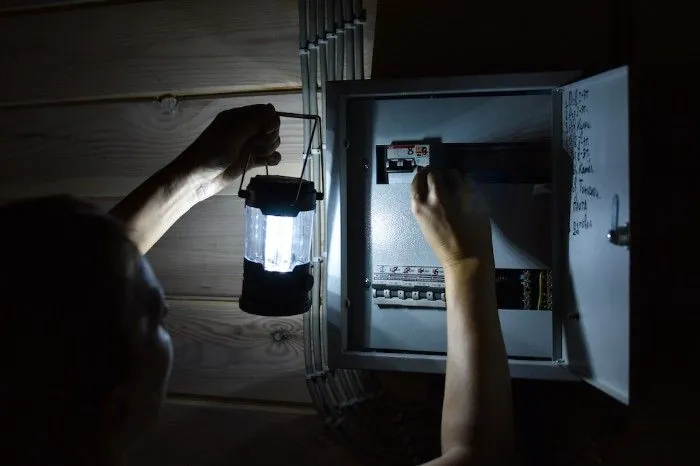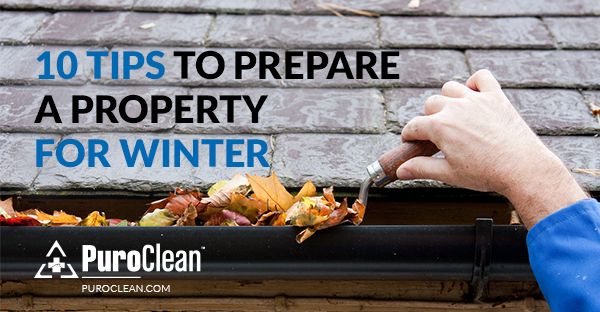When a power outage hits, we’re often left in the dark–sometimes literally. Whether caused by severe weather conditions, equipment failure, or unforeseen circumstances, losing power can range from a mere inconvenience to significant disruption. To help you navigate these challenging situations, we’ve compiled a list of essential power outage tips and recommendations to stay safe, comfortable, and well-prepared until the lights come back on.
Preparing for a Power Outage
Prepare an Emergency Kit
Preparation is key when it comes to power outages. Create an emergency kit with essential items such as flashlights, spare batteries, a first-aid kit, drinking water, non-perishable food, and a fully charged power bank for your electronic devices. Keep it in an easily accessible location, such as a designated emergency cupboard or backpack, to retrieve it when necessary.
Have An Emergency Plan In Place
Do you have an evacuation arrangement for emergencies, like a power outage? Make sure you do! Have a plan outlining the circumstances under which you would need to leave and consider others that need special attention (loved ones with power-dependent medical devices, for example).
Identify the causes that warrant an evacuation, such as severe weather warnings or prolonged power outages that threaten your well-being. Determine multiple evacuation routes and establish a communication plan with family members or neighbors.

Fill Your Car’s Gas Tank
The last thing you need is an empty gas tank during an emergency! Gas stations also depend on electricity to operate their pumps, so ensure your vehicle has plenty of fuel to avoid getting stuck during an outage. Additionally, your car can be a valuable resource if you have a prolonged power outage. With a full tank, you turn on your vehicle to charge your phones and other portable electronic devices, allowing you to stay connected and receive critical updates–even when your home is without power.
Stay Connected During the Power Outage
During power outages, maintaining communication is vital for staying informed and reaching out for help. Keep a battery-powered radio to stay updated on emergency broadcasts and news. Have your mobile phones and other communication devices fully charged before you lose power. Consider investing in a car charger as an additional backup power source. Alternatively, portable solar chargers can harness sunlight to recharge your devices.
If the electrical power is out indefinitely, conserve your phone’s battery life by switching it to airplane mode or turning it off when not in use. Limiting power-intensive applications and reducing screen brightness can also help extend battery life.
Preserve Food
Take steps to preserve the perishable food in your refrigerator and freezer for power outages that last for an extended period. Keep the refrigerator and freezer doors closed as much as possible to retain the cold air. Refrigerated food generally remains safe for about four hours, while frozen food can last up to 48 hours if the freezer remains unopened. Consider using a food thermometer to check the internal temperature of perishable items.
To extend the life of refrigerated items, you can also place ice packs or frozen water bottles inside to help keep food cold. Another option is to store certain perishable items in a cooler with ice or frozen gel packs. As an additional precaution, label items in the refrigerator or cooler to ensure food safety.
Use Alternative Light Sources
Alternative light sources can greatly enhance your comfort during a power outage. In addition to flashlights and spare batteries, battery-operated lanterns or LED headlamps can be very convenient during a power outage. These hands-free lighting options can be beneficial when performing tasks or moving around in the dark. Keep a stock of candles, matches, and lighters available. When using traditional candles, ensure the open flames are placed away from flammable materials and never leave them unattended.
Consider investing in energy-efficient LED lights, which last longer and consume less power. Solar-powered or crank-powered flashlights and lanterns are also excellent options, as they do not rely on traditional batteries and can be recharged using renewable energy sources.

Keep Warm (or Cool)
Extreme weather conditions can make power outages particularly challenging. In cold weather, layer up with warm clothing, including thermal undergarments, sweaters, and socks. Use extra blankets or sleeping bags to stay warm. Close off unused rooms to conserve heat and gather the family in a central area for additional warmth. You can also use towels and other clothing items to block gaps in doors to prevent chilly drafts from coming in. Hanging blankets on windows can also help increase insulation.
If you have a fireplace or wood-burning stove, ensure you have a supply of dry firewood, matches, and fire-starting materials. However, do not use gas stoves, grills, or generators indoors as they pose carbon monoxide risks. If you must use a generator, place it outside and away from windows, vents, and doors. Install battery-operated carbon monoxide detectors in key areas of your home to provide early warning of any buildup of this dangerous gas.
In hot weather, create cross-ventilation by opening windows and using battery-powered fans. Draw curtains or blinds to block out direct sunlight and retain a cooler indoor temperature, and consider using damp towels or sheets as makeshift “cooling wraps” to keep yourself and your family members comfortable. Hydration is crucial, so drink plenty of fluids and avoid strenuous physical activity during the day’s hottest hours.
Unplug Electronics
Unplug sensitive electronics before the power goes out to protect them from potential power surges when the electricity is restored. This step will safeguard your devices against damage and prevent possible fires. Leave a lamp or appliance switched on to know when the power returns.
Consider using surge protectors for valuable electronics, which can provide extra protection against power surges and fluctuations. Surge protectors with built-in battery backups, known as uninterruptible power supplies (UPS), can temporarily power essential devices such as computers, routers, and medical equipment.
Be Mindful of Perishable Medical Supplies
Have a backup plan if you rely on medical equipment or perishable medications needing refrigeration. Contact your healthcare provider or pharmacy to learn about alternative options during power outages. A generator or backup power supply can ensure uninterrupted power for critical medical needs. Make sure to regularly check the expiration dates of medications and have an emergency supply available.

Be a Good Neighbor
During power outages, look out for one another! Check on your neighbors, particularly seniors or those with special needs, to see how they’re doing. Offer assistance if necessary and share any available resources. Community support and solidarity can make a significant difference in challenging situations. You may want to form or join a neighborhood communication group to keep everyone informed and coordinated during emergencies.
What to Do After a Power Outage
Power outages can disrupt our daily lives, but when the electricity returns, don’t resume your routine just yet! Proceed with caution to ensure you and your property are safe. Some hazards can arise, so here are some safety tips to remember after the lights come back on.
Check for Electrical Hazards
When the power comes back on, take a moment to inspect your home for any potential electrical dangers. Look out for frayed electrical wires, sparks, or smoke from outlets, switches, or equipment. If you notice any damage or electrical issues, turn off the main electrical switch and contact a qualified electrician to assess and address the problem.
Discard Perishable Food
Have your refrigerated or frozen food items been there too long? It’s best to toss it out! One of the primary concerns after a power outage is the safety of perishable food in your refrigerator and freezer. Throw out perishable items stored above 40 degrees Fahrenheit to avoid getting sick. “When in doubt, throw it out” is the saying that you should remember. Don’t take chances with potentially spoiled food that could lead to food poisoning.

Inspect and Clean Generators
Your generator provided much-needed relief during a power outage, so now you’re ready to store it away. Before doing so;
- Inspect it for any signs of damage or wear.
- Follow the manufacturer’s instructions for maintenance and cleaning, ensuring it’s in good working condition for future use.
- Remember that testing your generator a few times a year is a good rule of thumb. If you can, every three to four months is generally plenty. When you turn it on, you should let it run for 10-20 minutes to give it enough time to get all the parts moving and oiled up. To prevent carbon monoxide poisoning, operate generators outside, away from open windows or doors.
Test Smoke and Carbon Monoxide Detectors
Power outages can sometimes affect the functioning of smoke and carbon monoxide detectors. After the power returns, test these devices to ensure they are operational. Replace batteries if needed, or consider upgrading to long-life battery-powered sensors for added convenience and safety.
Check Refrigerated Medications and Medical Supplies
If you rely on refrigerated medications or temperature-controlled medical supplies, speak with your healthcare provider or pharmacist about their viability after a power outage. Follow their guidance on whether you can continue using them or if it’s best to discard them altogether. Your health and safety are always a top priority in such situations!
Water Safety Practice
Power outages can sometimes affect the water supply or compromise tap water quality. Follow local advisories or boil water notices to ensure your water is safe. If an alert has been issued, use bottled water for drinking, cooking, and personal hygiene. As an additional precaution, consider flushing your plumbing system by running the faucets for a few minutes to clear any stagnant water.

Contact PuroClean for Property Damage Restoration!
For property damage restoration, whether due to water, fire, mold, or other unforeseen events, PuroClean is the smart choice to call. We are a trusted name in the restoration industry, offering professional and reliable services to help restore your property to its pre-damaged condition.
Our highly trained technicians use advanced tools and expertise to handle any property damage situation efficiently and effectively. We provide comprehensive restoration services 24 hours a day, seven days a week. With our prompt response and commitment to customer satisfaction, you can trust us to handle all your property damage needs with care and professionalism. Call us today at (800) 775-7876.




